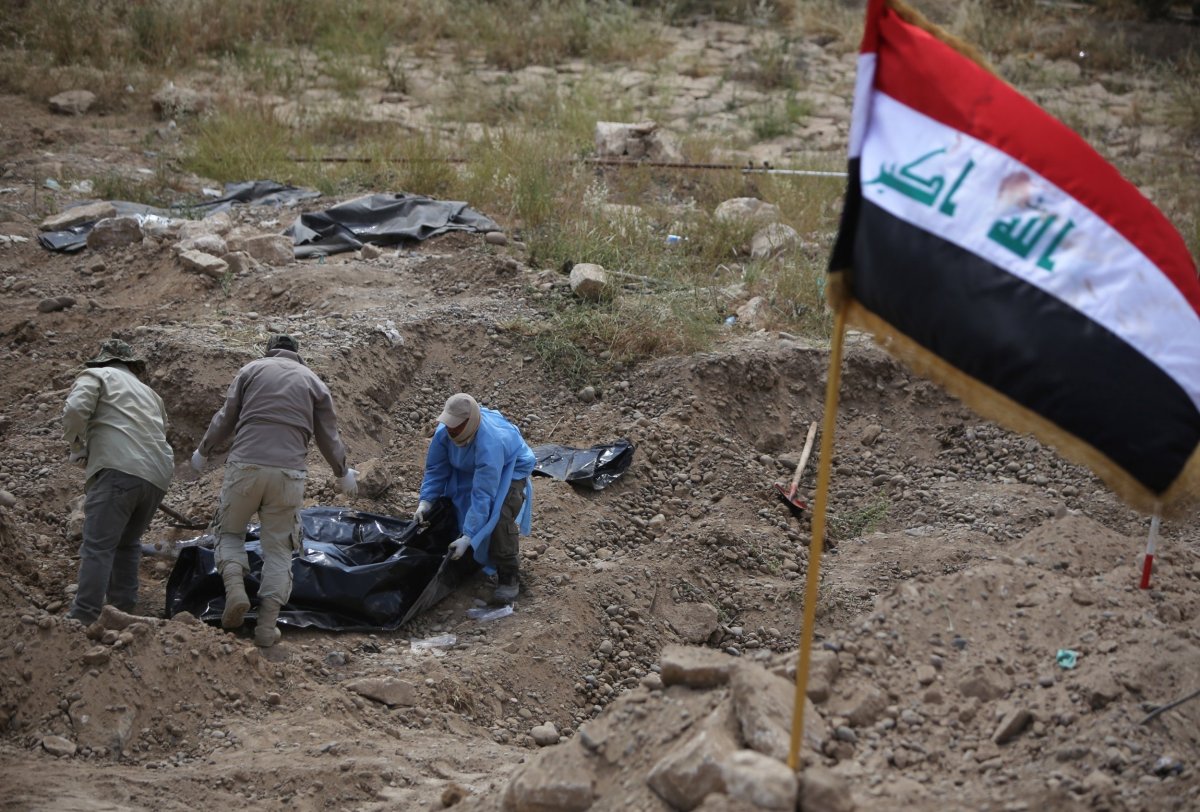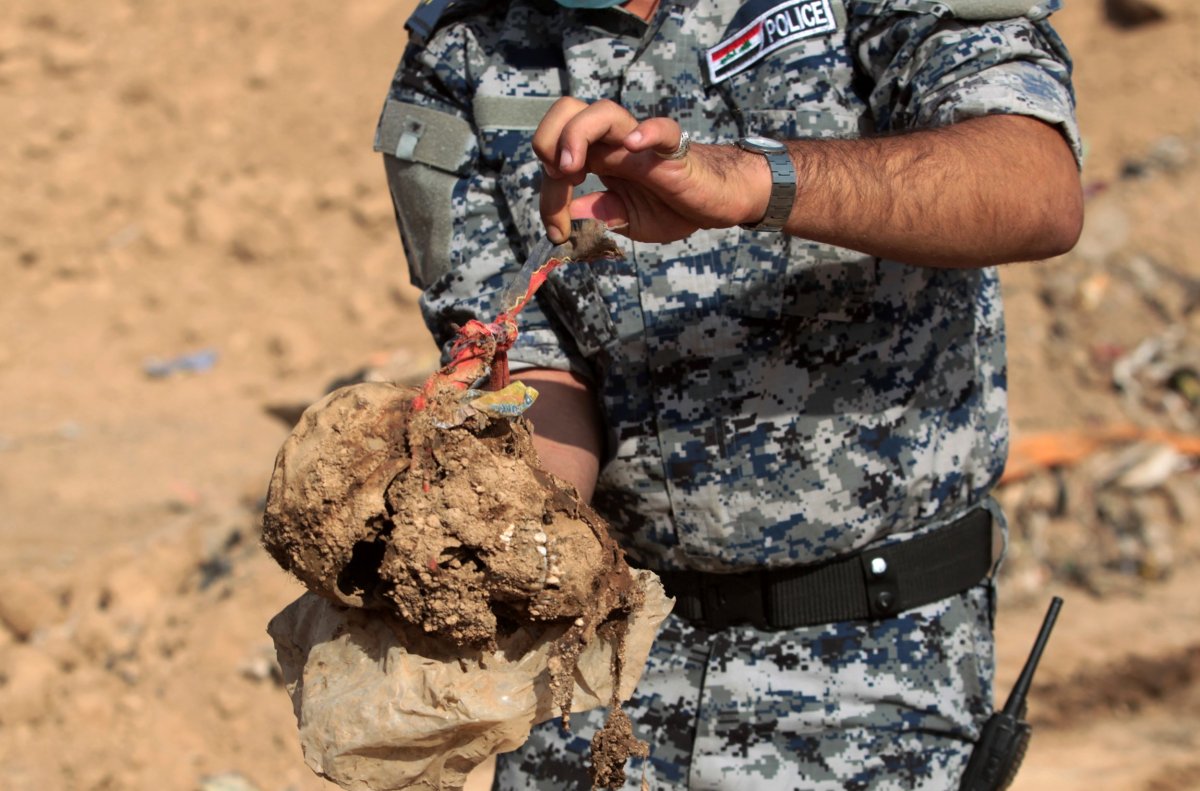The United Nations has verified hundreds of mass graves in Iraq, where the bodies of between 6,000 and 12,000 victims of the Islamic State militant group (ISIS) were dumped as the group rampaged across the north of the country.
U.N. investigators released a new report Tuesday detailing the 202 graves in the north and western governorates of Nineveh, Kirkuk, Salahuddin and Anbar. Dating from 2014 to 2017, the mass graves provide further evidence of the group's short-lived and brutal reign over a significant portion of Iraq.
As they swept through swathes of Iraq and Syria, ISIS fighters captured thousands of people they considered enemies. Whether members of the security forces, ethnic minority groups or Shiite communities, many were killed in mass executions, the Associated Press noted.

Those who survived—often young women—were enslaved and handed out among ISIS fighters to be kept and abused as they saw fit. The U.N. said the widespread actions could amount to war crimes.
"The mass grave sites documented in our report are a testament to harrowing human loss, profound suffering and shocking cruelty," said Jan Kubis, the special representative for Iraq of the secretary-general of the U.N.
The report stressed that more mass graves may be found in the future, but Kubis suggested that uncovering "the circumstances surrounding the significant loss of life will be an important step in the mourning process for families and their journey to secure their rights to truth and justice."
One of the most infamous periods of mass killing took place in 2014, after ISIS militants overran Camp Speicher, which was then occupied by the Iraqi army. Around 1,700 people were executed in the aftermath, with many of their deaths captured in brutal propaganda videos.

In some cases, ISIS militants did not dig graves to dispose of their victims. Instead, bodies were thrown into wells and sinkholes to dispose of them quickly. The U.N. report suggested there could be thousands of bodies in the Khasfa sinkhole to the south of Mosul, which was the most populous city under ISIS control until it was captured by Iraqi troops in 2017.
The Washington Post explained that prisoners would regularly be taken just outside the city to the sinkhole, where they were made to line up before being shot and kicked into it. Others were already dead when their bodies arrived at the sinkhole, while residents said some were still alive when thrown in.
Iraqi authorities have thus far exhumed the remains of 1,258 people from 28 graves, the investigators explained. The report called on officials to continue their efforts until all remains had been recovered, and to pursue justice for the families of the dead. The U.N. also suggested all remains should be preserved and eventually returned to the families.
Though Iraq declared victory over ISIS in December 2017, small pockets of fighters still operate along the border with Syria, caught between troops belonging to a variety of enemies. Nonetheless, they have proven their ability to mount gun and bomb attacks as well as numerous assassinations elsewhere in Iraq, shifting back to the guerilla warfare the group used before emerging as a territorial power in 2014.
Uncommon Knowledge
Newsweek is committed to challenging conventional wisdom and finding connections in the search for common ground.
Newsweek is committed to challenging conventional wisdom and finding connections in the search for common ground.
About the writer
David Brennan is Newsweek's Diplomatic Correspondent covering world politics and conflicts from London with a focus on NATO, the European ... Read more
To read how Newsweek uses AI as a newsroom tool, Click here.








